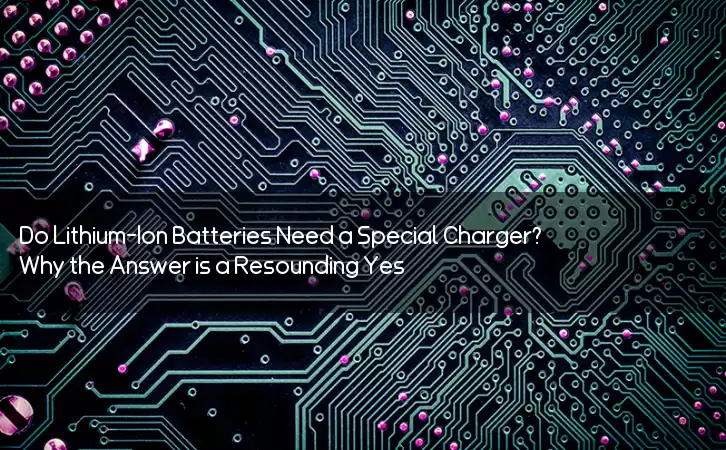Information Center
Do Lithium-Ion Batteries Need a Special Charger? Why the Answer is a Resounding Yes
Published:2023-06-10 10:37:55 Author:Green WCND Views:52Lithium-ion batteries have become an integral part of modern life, powering everything from smartphones and laptops to electric vehicles and power tools. They are known for their high energy density, fast charging speed, and long lifespan. However, one question that often arises among consumers is whether these batteries require a special charger or not. In this article, we will explore the answer to this question and examine the factors that affect the charging of lithium-ion batteries.

The short answer to the question is yes, lithium-ion batteries do require a special charger. Unlike the old nickel-cadmium batteries, which could be charged with any charger, lithium-ion batteries are more sensitive to charging conditions and require a specific charging profile to function optimally. The reason for this is that lithium-ion batteries have a delicate chemistry that is easily damaged if exposed to improper charging conditions.

To understand the special requirements of lithium-ion batteries, let’s first look at their charging process. Lithium-ion batteries operate at a voltage range of 3.0 to 4.2 volts and have a constant-current/constant-voltage charging pattern. In the first phase of charging, the battery is charged at a constant current until it reaches about 70% of its capacity. In the second phase, the charger switches to a constant voltage mode and maintains the voltage at 4.2 volts until the battery is fully charged. It is important to note that lithium-ion batteries have a limited tolerance for overcharging, and if the voltage exceeds 4.2 volts, it can damage the battery’s chemistry and reduce its lifespan.
Now that we know the charging process of lithium-ion batteries, let’s discuss the factors that affect their charging performance. The first factor is the charging current. Lithium-ion batteries require a precise amount of current, and if the charging current is too high, it can cause the battery temperature to rise, leading to premature aging and reduced capacity. On the other hand, if the charging current is too low, it can take longer to charge the battery, and certain types of lithium-ion batteries may not fully charge.
The second factor is the charging temperature. Lithium-ion batteries are sensitive to temperature, and if they are charged in extreme temperatures, it can cause irreversible damage to the battery’s chemistry. The optimum temperature range for charging lithium-ion batteries is 0°C to 45°C. Charging in temperatures outside this range can also affect the charging speed and overall battery performance.
Finally, the third factor is the charger itself. As mentioned earlier, lithium-ion batteries require a specific charging profile, which can vary depending on the type and capacity of the battery. Using a charger that is not designed for lithium-ion batteries can result in improper charging and damage to the battery’s chemistry. It is recommended to use a charger that is compatible with your specific lithium-ion battery and meets the prescribed charging requirements.
In conclusion, lithium-ion batteries do require a special charger to ensure optimal charging performance and prolong the lifespan of the battery. The charger must provide a precise amount of current, operate within the optimum temperature range, and be specifically designed for lithium-ion batteries. By following these guidelines, you can ensure that your lithium-ion battery lasts longer, performs better, and provides reliable power for your various devices and appliances.
IntroductionGolf carts serve as vital transportation tools on golf courses, and their performance and reliability are crucial for enhancing player experience an···
The battery pack is the heart of a golf cart, silently powering every acceleration and climb on the green. However, battery degradation often goes unnoticed, mu···
The battery pack is the heart of a golf cart’s power system, yet maintaining it has long been a challenge for technicians. Traditional troubleshooting methods—···
For golf course managers, ensuring smooth and efficient operations is crucial for providing a memorable experience for golfers and maintaining the reputation of···





